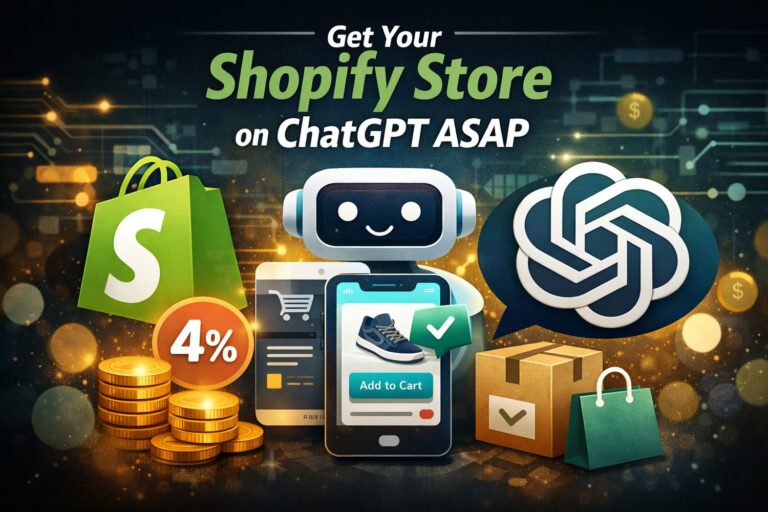Google just started indexing shared ChatGPT conversations, and a lot of people had no idea that was even possible.
If you’ve ever clicked “Share” on a ChatGPT thread and left that “Make this chat discoverable” box checked, your AI conversation may now be publicly searchable on Google. That includes anything from casual prompts to confidential business discussions, and yes, even sensitive client strategy.
The fallout has already begun. OpenAI has removed the discoverability feature, but Google’s index has already captured thousands of chats, and cached versions may stick around. If you or anyone on your team has ever shared AI-generated content, here’s what’s at stake and what you need to do now.
What’s Happening
OpenAI quietly introduced a feature letting users share ChatGPT conversations via link, and if the “Make this chat discoverable” checkbox was enabled, Google started indexing those publicly shared chats.
Thousands of conversations, including deeply personal and proprietary content, became searchable with a simple site:chatgpt.com/share query.
Shortly after, OpenAI removed the discoverability option and is now working with Google to de‑index existing indexed chats. However, cached conversations and copied content may persist in search results even after removal.
Why It Matters
For users, this exposed conversations intended to remain private, including confessions, health issues, business secrets, and creative ideas. Many users clicked the checkbox, thinking it was harmless, unaware that Google would crawl the link.
From a strategic perspective, this incident raises concerns and opportunities for brands and digital teams:
- Privacy and brand risk: If internal AI chats were mishared, proprietary strategy, internal planning notes, or client details might have entered public search results unintentionally.
- SEO insight goldmine: Marketers and SEOs discovered that these indexed conversations offer unfiltered insight into how users phrase search-intent questions, potentially more raw than traditional keyword tools.
- Trust in platform design: This demonstrates how AI tools can mislead users. Trust depends on clear UI patterns and comprehension, not just feature labels.
- Content strategy rethink: This event shifts how we think about AI-assisted content creation, shareability, and the risks of platform-based tools producing sensitive outputs.
As one Reddit user pointed out:
“You can only see chats the people have published… which literally says it makes it public… then it’s on them, not OpenAI.”
What You Should Do Now
These are the proactive steps to take now if you or your team has used shared ChatGPT links:
- Audit Shared Conversations:
- Search site:chatgpt.com/share for your company, product, or client-related terms.
- Identify any shared links that may have been indexed unintentionally.
- Search site:chatgpt.com/share for your company, product, or client-related terms.
- Delete and De‑index Sensitive Chats:
- Remove shared links from your ChatGPT Shared Links dashboard.
- Use Google’s “Remove Outdated Content” tool to request deletion from index and cache.
- Remove shared links from your ChatGPT Shared Links dashboard.
- Educate Team Members:
- Remind everyone not to use ChatGPT for sensitive work unless export happens manually.
- Clarify that any shareable link, especially discoverable, becomes public content unless explicitly removed.
- Remind everyone not to use ChatGPT for sensitive work unless export happens manually.
- Leverage Indexed Content for SEO Insight (If Appropriate):
- Search indexed shared conversations for raw search queries and user phrasing on industry topics.
- Use this insight to refine content, blog topics, and FAQ structure, without exposing your own content.
- Search indexed shared conversations for raw search queries and user phrasing on industry topics.
- Review AI Tool Usage Policies:
- Update your internal policy on AI tools to specify when public sharing is acceptable and how to control visibility settings.
- Ensure teams understand that “private” chat tools may not guarantee privacy.
- Update your internal policy on AI tools to specify when public sharing is acceptable and how to control visibility settings.
OpenAI’s rollback is fast, but the lessons are slow. This incident proves that AI-assisted tools often blur the line between private and public. If you’ve ever shared a prompt you thought was private, do a quick check now.
Want help auditing your ChatGPT outputs or building policies around AI-driven content and privacy? Let’s schedule a session and make sure you’re using AI strategically and safely.
FAQs
1. Can Google really index ChatGPT conversations?
Yes. When users shared ChatGPT threads with the “Make this chat discoverable” box checked, those URLs were publicly crawlable and indexed by Google.
2. How can I remove my ChatGPT conversations from Google Search?
Delete any shared links from your ChatGPT dashboard, then use Google’s Remove Outdated Content tool to request deletion from search results and cache.
3. Why did this happen in the first place?
OpenAI introduced a discoverability feature that made shared links public by default. Many users didn’t realize this made their chats searchable.
4. Has OpenAI fixed the issue?
Yes. OpenAI has since removed the discoverability option and is working with Google to de-index existing shared chats, though cached copies may remain temporarily.
5. What should businesses do to stay protected?
Audit any shared ChatGPT links, review internal AI usage policies, and educate teams on privacy settings before sharing generated content.






no replies